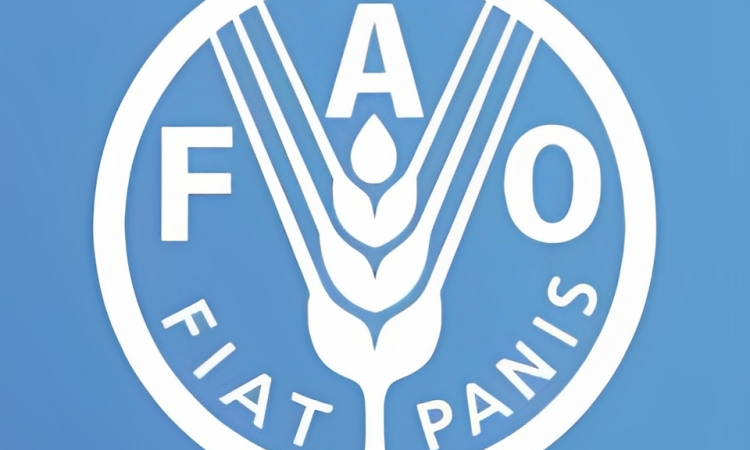
Job Description
Organizational Setting
The Food and Agriculture Organization of the United Nations (FAO) contributes to the achievement of the 2030 global Agenda through the FAO Strategic Framework by supporting the transformation to MORE efficient, inclusive, resilient and sustainable agrifood systems, for better production, better nutrition, a better environment, and a better life, leaving no one behind. The main aim of the FAO country offices, which are headed by an FAO Representative, is to assist governments to develop policies, programmes and projects to achieve food security, reduce hunger and malnutrition, help develop the agricultural, fisheries and forestry sectors, and to use their environmental and natural resources in a sustainable manner. The Regional Programme in Livestock and Pastoralism for Climate Change Adaptation in Eastern/Horn of Africa is designed to contribute to the development of sustainable climate resilient pastoral systems in Eastern/Horn of Africa that could improve the livelihoods of pastoral communities. The programme aims to enhance the resilience and adaptive capacity of pastoralist communities. It focuses on creating income-generating opportunities based on circular economy principles, especially supporting women and youth; conserving the environment, biodiversity and promoting initiatives aimed at reducing greenhouse gas emission and sustainable use of transboundary natural resources to improve the social and living conditions of people engaged in the Pastoral Livestock Value Chains in the region.
Reporting Lines
The programme will be implemented under the overall supervision of the Chief Veterinary Officer (CVO)/Chief, Animal Health Service (AGAH)/, the functional and administrative supervision of the FAO Representative in Tanzania, the direct supervision of the ECTAD Country Team Leader in Tanzania, immediately guidance of Programme Coordinator and with additional technical backstopping of the SFE Resilience Team for Eastern Africa.
Advertisement
Technical Focus
The incumbent will ensure that workstreams and activities related to livestock production and health are implemented adequately and contribute to meeting the target indicators and overall objectives of the project, Regional Programme in Livestock and Pastoralism for Climate Change Adaptation in Eastern/Horn of Africa (GCP/INT/1051/EC (PLACE).
Tasks and responsibilities
• Contribute to enhancing the production and animal health capacities of pastoral value chain actors.
• Support transboundary animal pest and disease surveillance and control.
• Support development of community-based breeding programs to improve the productivity of breeds adapted and resilient to local conditions.
• Support harmonized animal disease surveillance (including sero-monitoring) in the target clusters.
• Conduct mapping, predictive modelling, characterization, GIS training, and implement push-pull approach for control of vectors and important pests and diseases in the clusters.
• Train community-based animal health service providers and conduct harmonized PPR vaccination campaigns including support to cold chain systems.
• Establish and/or strengthen veterinary lab diagnostic capacity with clear Standard Operating Procedures (SOPs) and Sanitary Standard Operating Procedures (SSOP) at cluster level.
• Identify and facilitate livestock and products certification in support of internal and cross-border trade and compliance with IGAD transhumance protocol and SPS standards.
• Support the assessment of existing LIS and pilot a simple /or build on an existing livestock identification system and identify lessons and recommendations for replication and upscaling.
• Facilitate annual national and regional pastoral association experience-sharing meetings.
• Providing inputs to annual reporting, MEAL, adaptive management, communication and advocacy and other required data collection efforts, relevant for livestock related work.
• Act as a liaison for communities, (local) partners and (local) government representatives with regards to livestock related work.
• Perform other related duties as required.
Advertisement
CANDIDATES WILL BE ASSESSED AGAINST THE FOLLOWING
Minimum Requirements
• Master’s degree Animal/Livestock production, Veterinary Science or related fields.
• Minimum of 5 years of relevant experience in animal health, production and health, and sustainable pastoral value chain development.
• Minimum of five years of relevant experience in public / private service or academic/research setting in animal health and or production.
• Working knowledge of English and Kiswahili.
• National of Tanzania.
FAO Core Competencies
• Results Focus
• Teamwork
• Communication
• Building Effective Relationships
• Knowledge Sharing and Continuous Improvement
Technical/Functional Skills
• Excellent report writing and communication skills
• Proven experience in engagement of pastoralist communities and training in simple livestock health and production methods.
• Strong understanding of circular economy principles and their application in the pastoral value chain.
• Excellent communication and facilitation skills.
• Ability to work in a multicultural and multidisciplinary team.
• Knowledge on climate smart livestock practices and experience in pastoral value chain development is essential.
• Knowledge in community engagement and development is essential
• Experience in pastoralism/pastoral production systems is essential
ADDITIONAL INFORMATION
- FAO does not charge a fee at any stage of the recruitment process (application, interview meeting, processing)
- Applications received after the closing date will not be accepted
- Please note that FAO only considers higher educational qualifications obtained from an institution accredited/recognized in the World Higher Education Database (WHED), a list updated by the International Association of Universities (IAU) / United Nations Educational, Scientific and Cultural Organization (UNESCO). The list can be accessed at http://www.whed.net/
- For additional employment opportunities visit the FAO employment website: http://www.fao.org/employment/home/en/
- Appointment will be subject to certification that the candidate is medically fit for appointment, accreditation, any residency or visa requirements, and security clearances.